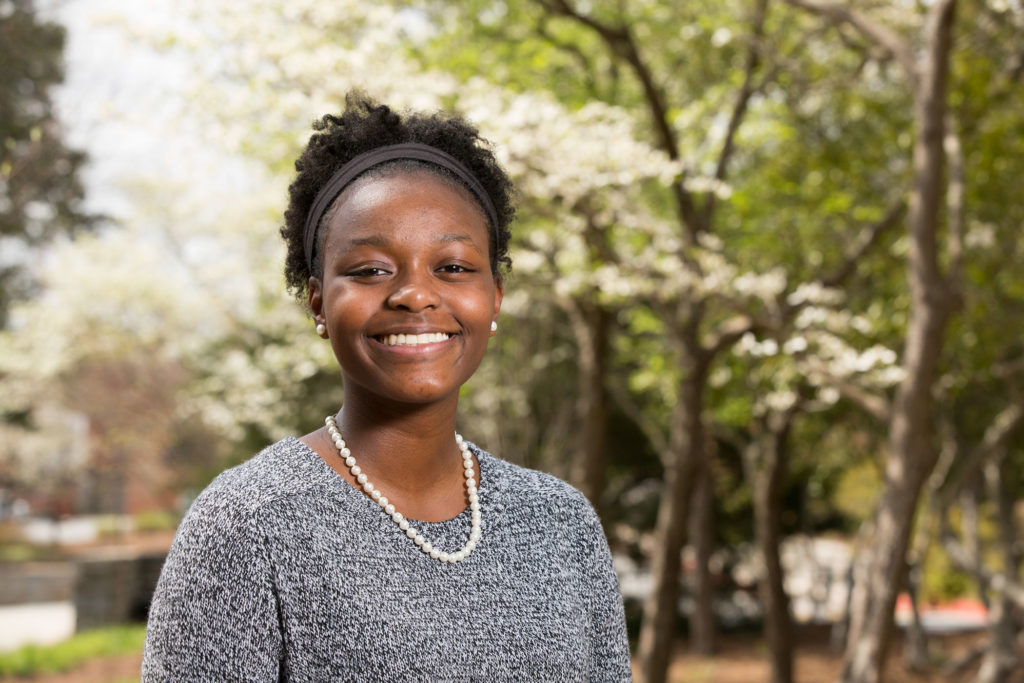Sydney-Alyce Bourget stands at the edge of Harvard Forest, measuring the height of one of the 25 garlic mustard plants she’s been studying.
Emil Dmello sorts through election data, looking at economic indicators like unemployment, inflation, the misery index and GDP searching for their connection to election outcomes.
Zack Flagel scrolls through the spreadsheet on his computer, checking baseball stats not many people know by heart: the number of spectators injured by foul balls at Major League Baseball games.
McKenna Barney easily spots trends in case studies on maternal malnutrition in conflict zones: Hunger and conflict go hand in hand, and food is often used as a weapon.
These four University of Georgia students are among 554 undergraduates who presented their research at the annual CURO Symposium. They’ve spent hours, semesters, years working with faculty mentors as they study topics that interest them.
Hosted by the Center for Undergraduate Research Opportunities, the Symposium is a chance for students to “tell the world about our research,” Bourget said. Held April 3-4 at the Classic Center in downtown Athens, the event included students in 91 majors and 13 colleges and schools and involved 311 faculty mentors from 73 UGA departments.
Over the past several years, Symposium organizers have seen an increase in the number of students participating. CURO, administered by the Honors Program, was expanded to non-Honors students in 2010, a year when about 200 undergraduates took part in the event. In 2014, participation broke 250 and has been skyrocketing ever since.
“It has been a great pleasure to observe the growth of undergraduate research across the UGA campus in recent years,” said David S. Williams, associate provost and director of the Honors Program. “This growth is the result of both student interest and faculty support. To be able to offer students up to a full four years of faculty-mentored research in any field of study is truly amazing.”
Much of the growth is due to a $1,000 research stipend the university launched in 2014 as part of a series of academic enhancements. Known as the CURO Research Assistantship, the program now awards 500 stipends annually.
“The success of the CURO Research Assistantship has resulted in dramatic growth in participation for the CURO Symposium,” said Martin Rogers, associate director of the Honors Program and CURO. “The wide distribution of majors, faculty departments and subject matter we see in our Symposium program reflects the expansive impact of that initiative.”
At the heart of the numbers are students like CURO Honors Scholar Sydney-Alyce Bourget from Jonesboro, a third-year ecology major in the Odum School of Ecology who studies with professor Jeb Byers. She is fascinated by invasive plants. This summer, she’ll analyze cordgrass impact on the Georgia coast.
“I’ve always had the desire to learn and investigate things, and UGA definitely solidified my passion for doing research and for learning,” she said.
To help students in their research, CURO offers coursework, support staff and information sessions on how to begin conducting research. In addition to stipends, the program offers $3,000 summer fellowship grants. Research through CURO fulfills the university’s newly implemented experiential learning requirement.
